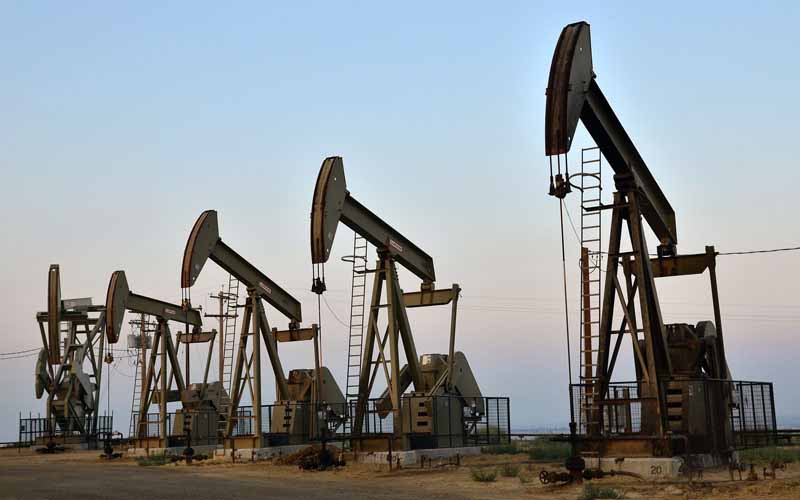We help the world growing

Crude Oil is a naturally occurring, yellowish black liquid found in geological formations beneath the Earth's surface. It is commonly refined into various types of fuels. Components of petroleum are separated using a technique called fractional distillation, i.e. separation of a liquid mixture into fractions differing in boiling point by means of distillation, typically using a fractionating column. It consists of naturally occurring hydrocarbons of various molecular weights and may contain miscellaneous organic compounds. The name petroleum covers both naturally occurring unprocessed crude oil and petroleum products that are made up of refined crude oil. A fossil fuel, petroleum is formed when large quantities of dead organisms, mostly zooplankton and algae, are buried underneath sedimentary rock and subjected to both intense heat and pressure.
Petroleum has mostly been recovered by oil drilling. Drilling is carried out after studies of structural geology, sedimentary basin analysis, and reservoir characterisation. Recent improvements to technologies have also led to exploitation of other unconventional reserves such as oil sands and oil shale. Once extracted, oil is refined and separated, most easily by distillation, into numerous products for direct use or use in manufacturing, such as gasoline (petrol), diesel and kerosene to asphalt and chemical reagents used to make plastics, pesticides and pharmaceuticals. Petroleum is used in manufacturing a wide variety of materials, and it is estimated that the world consumes about 100 million barrels each day. Petroleum production can be extremely profitable and was important for economic development in the 20th century, with some countries, so called "oil states", gaining significant economic and international power because of their control of oil production.
Petroleum exploitation has significant negative environmental and social consequences. Most significantly, extraction, refining and burning of petroleum fuels all release large quantities of greenhouse gases, so petroleum is one of the major contributors to climate change. At the same time, parts of the petroleum industry actively suppressed science and policy that aimed to prevent the climate crisis. Other negative environmental effects include the environmental impacts of exploration and exploitation of petroleum reserves, such as oil spills, and air and water pollution at the sites of utilization. All of these environmental impacts have direct health consequences for humans. Additionally, oil has also been a source of conflict leading to both state-led-wars and other kinds of conflicts (for example, oil revenue funded the Islamic State of Iraq and the Levant). Production of petroleum is expected to reach peak oil before 2040 as global economies reduce dependencies on petroleum as part of climate change mitigation and a transition towards renewable energy and electrification. This is expected to have significant economic impacts that stakeholders argue need to be anticipated by a just transition and addressing the stranded assets of the petroleum industry.